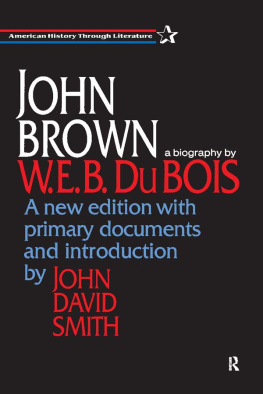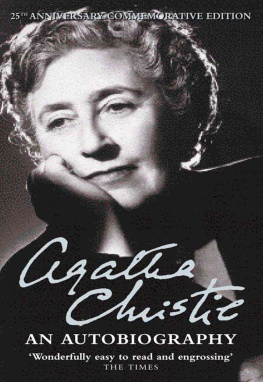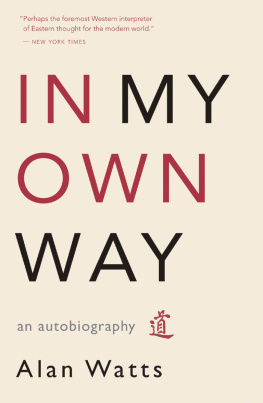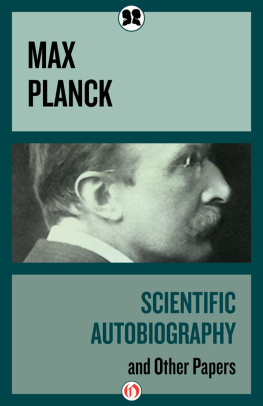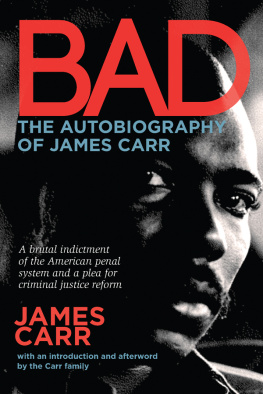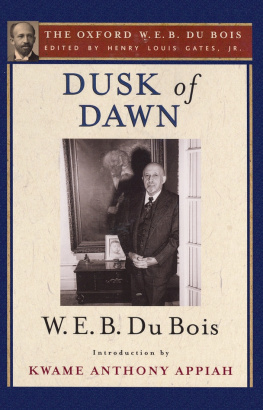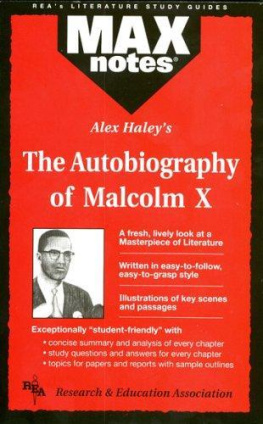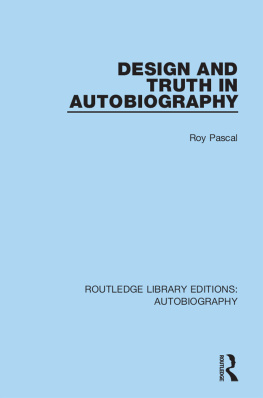W.E.B. Du Bois
DUSK OF DAWN
African-American Studies
Doris Y. Wilkinson, Series Editor
Against the Odds, Wilbur H. Watson
An American Dilemma, Volumes I and II,
Gunnar Myrdal
Bitter Canaan, Charles S. Johnson
Black Folk Medicine, edited by Wilbur H. Watson,
with a foreword by Doris Y. Wilkinson
Dusk of Dawn, W. E. B. Du Bois,
with a new introduction by Irene Diggs
In the Shadow of the Plantation, Charles S. Johnson,
with a new introduction by Joseph Himes
The Man Farthest Down, Booker T. Washington and Robert E. Parks,
with a new introduction by St. Clair Drake
Race, Radicalism and Reform, Abram L. Harris,
edited and with an introduction by William Darity, Jr.
W.E.B. Du Bois
DUSK OF DAWN
An Essay Toward
An Autobiography
of A Race Concept
New Introduction by Irene Diggs
Acknowledgment is made to Harper & Brothers for permission to quote from Heritage, one of the poems in Countee Cullens volume, Color.
First published 1984 by Transaction Publishers
Published 2017 by Routledge
2 Park Square, Milton Park, Abingdon, Oxon OX14 4RN
711 Third Avenue, New York, NY 10017, USA
Routledge is an imprint of the Taylor & Francis Group, an informa business
New material this edition copyright 1984 by Taylor & Francis.
Original material copyright 1968 by Shirley Graham Du Bois,
Copyright 1940 by Harcourt, Brace & World, Inc.
All rights reserved. No part of this book may be reprinted or reproduced or utilised in any form or by any electronic, mechanical, or other means, now known or hereafter invented, including photocopying and recording, or in any information storage or retrieval system, without permission in writing from the publishers.
Notice:
Product or corporate names may be trademarks or registered trademarks, and are used only for identification and explanation without intent to infringe.
Library of Congress Catalog Number: 83-9142
Library of Congress Cataloging-in-Publication Data
Du Bois, W. E. B. (William Edward Burghardt), 1868-1963. Dusk of dawn. (Black classics of social science)
Reprint. Originally published: Schocken Books, 1968.
Includes index.
1. Du Bois, W. E. B. (William Edward Burghardt), 1868-1963. 2. Afro-AmericansSocial conditions. 3. United StatesRace relations. 4. Afro-AmericansBiography. I. Title. II. Series.
83-9142
EL85.97.D73A3231983305.8'96073
ISBN 13: 978-0-87855-917-6 (pbk)
TO
KEEP THE MEMORY
OF
JOEL SPINGARN
SCHOLAR AND KNIGHT
INTRODUCTION TO THE TRANSACTION EDITION
Irene Diggs
Du Bois dedicated books to Nina for their Golden Wedding, to Burghardt the Lost and Yolande the Found, to his granddaughter when she was six in the Hope That Her Bright Eyes May One Day See Some of the Things I Dream, to Virginia Alexander whom he loved and admired, to a character of his own creation, and others. Dusk of Dawn is dedicated to Keep the Memory of Joel Spingarn Scholar and Knight. Spingarn touched Du Bois emotionally more closely than any other White man; Du Bois was both fascinated by his character and antagonized by some of his quick and positive judgments. Spingarn was afraid that [he] was turning radical and dogmatic and even communistic; Spingarn used his power and influence in order to curb [his] acts and forestall any change of program of the Association by Du Bois. It was at Joel Spingarns home that the first Amenia Conference was held. Joel Spingarn was one of the speakers at the banquet honoring Du Boiss seventieth birthday. This occasion had a tremendous emotional effect upon Du Bois. He told me that he had felt he had been listening to his obituary. Afterwards he felt pressured by not having much more time to do all the things he had planned. He was aware that biographies of him would be written, and he wished to present his own point of view; to do so he worked furiously on Dusk of Dawn.
An Essay toward an Autobiography of a Race Concept should be read against the background of race in the latter part of the nineteenth and first half of the twentieth centuries when throughout the dominant world, race, color, or an ancestry of color was a badge of inferiority. This concept of race was arbitrarily defined, bold, deep-seated, and sanctioned by science, law, religion, and public opinion. Science and distinguished scientists, with very few exceptions, supported the belief in the intellectual, cultural, and biological inferiority of all non-Whites. In the United States Blacks were imprisoned within the confines of segregation and discrimination where they lived, earned a living, died, and were buried in segregated cemeteries. The theme of this book, the history of the race concept, was the dominant factor in Du Boiss life: race guided, embittered, illuminated and enshrouded his life and the lives of all Blacks. If it had not been for racism, Du Bois probably would have accepted the attitudes of his time and environment; he would have been an unquestioning worshiper at the shrine of the social order and economic development into which he was born, including the belief that poverty was the shadow of crime and connoted lack of thrift and shiftlessness.
In the beginning of his fight against racism Du Bois was provincial and narrow, thinking in terms of the relatively small group of Blacks in the United States and not all non-Whites. At first he accused the ignorance of the masses of men as the cause for racism. The solution was Truth: education, especially knowledge which was the result of scientific studies of Blacks using the scientific method which the intellectual world demanded and his education at Harvard and Berlin had emphasized. Later he was convinced that the problems of Blacks were not entirely due to ignorance but rather because of the determination of some Whites to discriminate and segregate, and that the actions of men not due to lack of knowledge or evil intent could be changed by influencing culture, behavior patterns, customs, and the enactment of laws. Gradually he was forced to recognize the obstacles, deliberately set by law and custom, which blocked him and thousands of others; that the rules of the game were determined by Whites. Education alone would not solve the problem: The black world must fight for freedom. It must fight with the weapon of Truth, with the sword of the intrepid, uncompromising Spirit, with organization in boycott, propaganda and mob frenzy.
It was after Du Bois left Harvard, while at the University of Berlin, that he began to envision the race problem in the United States to include the problems of the peoples of Africa, Asia, the economics and politics of Europe. He began to see clearly the connection of economics and politics; the fundamental influence of mans efforts to earn a living upon all his other efforts. He realized how the building of colonial empires turned into the threat of armed competition for markets, cheap material and cheap labor. For him, economics and politics were inextricably intertwined; he perceived politics as dominant, but because most Blacks were workers and earners of wages he was fascinated by economics.
During Du Boiss lifetime there was a hierarchical arrangement of cultures and peoples into higher and lower strata: those with histories and those without. Blacks were thought of as one changeless mass; they were not considered as belonging to the homo sapiens species. As a mass they were considered incapable of modification through time or improvement in spite of new races constantly developing as a result of biological amalgamation and differentiation. The conviction was widespread that no person of African descent should or could become a functioning part of the mainstream of American life no matter what his capabilities were. But some Blacks were equals of Whites, some were superior to some Whites; some Blacks did get an education, live in good homes, make contributions to culture. Edward Byron Reuter, perhaps the best-known advocate of Blacks achievements, argued in his


